- Home
- Jennifer Ashley
Scandal and the Duchess Page 4
Scandal and the Duchess Read online
Page 4
Rose hadn’t moved her gaze from Steven who looked steadily back at her. “You believe me?”
Steven’s eyes were quiet as he gave her a nod. “You’d best know who you married and who you didn’t, wouldn’t you?”
She couldn’t help letting a corner of her mouth turn upward. “And who I’m betrothed to?”
Steven’s almost-smile in answer made her face grow warm. “Exactly. It’s a forgery, Collins.” He guided Rose back to her chair, his hand strong on hers, and they all sat again. “Make the new duke admit it.”
“I will do so,” Mr. Collins said, sounding determined. “You may at least take comfort, Your Grace, of the duke’s bequests to you in his will. You have those, if nothing else.”
Rose blinked, her attention dragged from Steven. “Charles left me something in his will? I had not heard this.”
Mr. Collins regarded her in surprise that turned quickly to shock. “Are you saying you were not made aware of the will’s contents?”
Rose clenched her hands on the chair’s carved arms. “Albert and his solicitor told me the will had nothing to do with me. Blast the man.” Her temper rose as she realized the extent of Albert’s treachery. “He’s tried to cut me out at every turn.”
Mr. Collins shuffled more papers, apparently his method of diffusing a tense situation. “Your stepson might contest the bequest, of course, but what the late duke left you, I’m happy to say, is to you by name, absolutely, and not dependent on trusts, settlements, and former relationships.”
“Get on with it, Collins,” Steven said. “Tell her it’s something like the sum of twenty thousand guineas, to be settled on her without question.”
“Unfortunately not.” Mr. Collins looked apologetic and smoothed another paper in front of him. “He names no sum.”
“What does he name, then?” Rose asked, as impatient as Steven.
Collins cleared his throat again and read from the page he’d pulled out. “To Rose Elizabeth, née Barclay, whom I regard in the highest esteem, and because of her kindness, patience, and caring nature, I leave two pieces of furniture of her choice from Sittford House, my ducal seat, and all the contents of those two pieces, whatever they may be. To be hers absolutely, for her use, or for her to dispose of as she sees fit.”
Collins lowered the paper, and Rose stared at him, puzzled. “Two pieces of furniture? Are you certain?”
Mr. Collins put his finger on the line. “Quite certain.”
“What an odd thing for him to do,” Rose said softly. Charles had proved he’d had a taste for whimsy, but she wished he’d been more practical on this matter. A sum of money, no matter how small, or a pair of diamond earrings, or even Charles’s favorite horse, would have been welcome. Furniture was nice, but she no house in which to put it.
Steven was frowning, but his voice vibrated comfortingly. “Some old furniture can be valuable. Had the duke any good pieces?”
“Charles’s collection was famous,” Rose said, feeling nothing. “Sittford House has furniture and artwork from many periods of history, handed down through the family. But I thought it was all connected to the estate.”
“Much of it is,” Collins said, his apologetic tone becoming even more so. “The paintings and the more priceless of the antiques are part of the trust and must remain with the estate.” He gave Rose a look of sympathy. “If it’s any consolation, your stepson can’t sell them either.”
Steven frowned and brought his scarred fingertips together. “All the contents of the two pieces. Interesting way of putting it. Maybe he left her something in a bureau somewhere in the house. Jewels or something like that.”
Mr. Collins considered. “It is possible. Any jewels, though, that belong to the family stay with the family, unless the duke bought them specially for you.”
Rose shook her head. “Anything I wore belonged to Charles’s mother.” Albert hadn’t liked that one bit.
“You’re saying Albert gets his paws on everything,” Steven said, still frowning. “Except a few sticks of furniture. Not very fair to Rose.”
“Not everything is attached to the estate,” Mr. Collins said. “You’d have to go to the house or look at an inventory, Your Grace. I suggest you make an inventory yourself. Perhaps there was something your husband knew you liked, but feared to state it specifically in the will, in case his son tried to destroy it or sell it. The new duke can hardly get rid of every piece of furniture in the house to keep you from having any.”
“He might,” Rose said darkly. “Albert is as tightfisted as they come.” She lifted her chin. “But he’s kept me from what Charles wanted this long. I believe I’ll pay him a visit and take my two pieces of furniture, blast him.”
Steven reached over and rested his hand on hers. His fingers were hot, warmth on this cold, rain-streaked day. “Good for you,” he said. His eyes too, held heat, and a strength that Rose wanted to draw into herself. When he released her to turn back to Collins, his warmth remained, as though he’d gifted it to her.
“Is that all?” Steven asked Collins. “Nothing else she can do?”
“Not for the moment,” Collins said. “I’ll work to prove the marriage registered in Scotland never occurred, and fight for your settlements. I am good at what I do, if I say so myself, Your Grace. I wouldn’t give up yet.”
“Thank you.” Rose’s anger fell away in a rush of gratitude. “I’ve not had any hope since the day Charles passed. Bless you, Mr. Collins.” She rose and held out her hands to the man, and Mr. Collins, blushing even more heavily, stood up and let her grasp his.
“It’s my job,” Mr. Collins said, extracting himself, and putting his papers back into a valise. “Thank Mr. McBride for sending for me. He enjoys helping people, does Mr. McBride.”
Steven remained expressionless. “Appreciate you coming out in the rain, Collins,” he said. “I’ll walk you down.”
Mr. Collins took his leave of Rose with many expressions of politeness. Steven clasped Rose’s shoulder and leaned to gently kiss her cheek. “It will be all right,” he said. “I promise you.”
The kiss was like a touch of sunlight in gloom, a flicker of hope in a morass of fear. Steven’s confidence was so great that it reached through her veil of despair and found the Rose who’d been shivering in the dark since Charles had died.
His touch, his voice, his very presence was daring her to believe in miracles.
***
“Still helping those in need, are you, Stevie, lad?” Mr. Collins, whose Christian name was Tavis, said as he and Steven left the hotel.
They emerged to fine November rain, which coated the streets and stone buildings, turning the gray scene even more gray. The only contrast was black—carriages and hansoms, dark-colored horses, men in black overcoats and black hats. Collins’s bright red head and Steven’s kilt were the only colors in the gloom.
“Can’t seem to help myself,” Steven answered, trying to sound nonchalant.
Collins’s look turned serious. “Have you seen her yet?”
He wasn’t talking about Rose. Steven shook his head. “She’s been out of London. I have an appointment with her in two days’ time.”
“She already knows, I take it?”
“Yes—a cold, impartial telegram. But I want to see her. She deserves that.”
“It might not be easy.” Mr. Collins put his hand on Steven’s shoulder. “If you’d like me to go with you, I will. I am her solicitor too, you know.”
Steven shook his head. “She’ll be angry with me, and you need have no part in it.” He shrugged, and Collins released him. “I’ll cheer myself up helping Rose—the dowager duchess, I mean. Fortify myself for my task.”
Collins gave him a knowing look. “The very beautiful dowager duchess.”
“Beauty isn’t everything. I’ve learned that a time or two.” Steven couldn’t stop his sudden grin. “This one’s beautiful all the way through.”
“You’ve said that a time or two as well, Stevie.”
&n
bsp; “This is different.”
“Heard that one too.” Collins returned the grin. “When you get your heart broken, look me up, and I’ll pour whiskey down your throat. Again.”
“I won’t get my heart broken,” Steven said. “This is different, because it’s not a romance. I’m helping her; she’s taking my mind off my troubles.”
“Yes, of course.” Collins’s words were drowned out as a hansom clattered to a stop at the doorman’s signal. “Don’t you break her heart. She doesn’t deserve that.”
“No fear,” Steven answered. “Go do what you’re best at, Collins, and stop giving me advice on romance. Be off with you.”
Collins stuck out his hand, shook Steven’s, and scrambled into the hansom. Steven watched the man drive off, his emotions mixed. Whoever got their heart broken in this business arrangement, Steven was certain, it wouldn’t be Rose.
He put aside such maudlin thoughts as he headed out of the rain back into the hotel. His heart beat faster as he ascended the stairs, knowing Rose awaited him at the top. He wondered, between steps, whether his need to make up for his failure had prompted him to help her.
But when he opened the door, and Rose turned from the window with her welcoming look, Steven knew he’d not taken up with her for any feelings of guilt. He’d walk through fire for this woman. Steven only just met her, but already she’d changed his life.
If nothing else came of this, he’d be a different man when he left her, and for that he’d be forever grateful.
***
Sittford House, seat of the Dukes of Southdown, lay in Hampshire, far enough from London and other cities to be free of smoke and grime. These days, with trains as swift as they were, the journey was not more than an hour or two.
Steven booked a first-class carriage for himself and Rose. Journalists lay in wait for them outside the hotel, and managed to be in the train station as well. They wanted to know where Rose and Steven were going.
“Business,” Steven told them, and let them make of it what they would. “You know how betrothals are.”
“When will the banns be read?” someone asked. “Or will this be a Scottish wedding?”
“We’ll wed in Scotland,” Steven said. “With family.” He tipped his hat. “Good day, gentlemen. Ladies.”
Rose said nothing at all, only gave them her winsome smile. The smile sent Steven on flights of wicked fancy, but he could see the journalists didn’t approve. Perhaps if Rose had been demure and walked about with her head bowed, she might escape more of the scurrilous stories. The journalists might have decided that her late husband had married a nurse to take care of him in his dotage, instead of a lively woman to give him back his youth.
Rose Barclay was anything but demure, Steven thought as the maid fussed around to settle her into the compartment. Though her frock was buttoned to her chin, and she wore only mourning jewelry, her color was high, her eyes sparkling, her head lifted. All the black clothes in the world couldn’t repress her vibrancy.
As the train slid out of the city, and the maid left them, Rose looked about her as though this were the most exciting journey she’d taken in some time. Steven enjoyed himself watching her for a while before he forced himself back to business.
“Tell me about Keith Erskin,” he said as the farmland, dusted with snow, flowed past, along with low, tree-covered hills. “The man you are purported to have married. Is he likely to cause trouble over this?”
Rose shook her head, looking neither guilty nor embarrassed. “He was a childhood friend, later a beau.” Her cheeks went pink. “We were caught kissing at a ball when I was eighteen. He was encouraged to propose to me, but I could see his heart wasn’t in it, poor lad. The prospect of marrying at eighteen and settling down dismayed him greatly. So I refused him. This gave me the reputation of being a very fast young lady indeed, and my father took me away to Edinburgh.” She looked out the window, her gaze going remote. “In retrospect, perhaps we ought to have married, but we were young and full of stubborn dreams. We each were determined to see the world, I remember, but neither of us has left the British Isles as far as I know.” She gave a short laugh. “We might have had an ordinary life, in an ordinary town, and I’d not be followed about whenever I step out of doors.”
Steven couldn’t stop his smile, which rose up inside him like a light. “You were never made for ordinary, Rosie. There’s nothing ordinary about you and never will be.”
She flushed, which made her look even more like an exotic siren trapped in the stiff clothing of a less enlightened age. “You aren’t so ordinary yourself,” she said.
“True.” Steven tried to ignore the excitement of having that lovely green gaze on him. He’d left the hotel last night to do quite a bit of drinking before he’d been able to return, precisely to forget that look. Hadn’t worked. “I had a strange upbringing—raised by my oldest brother, Patrick, who has twenty years on me. I was the spoiled youngest child, and it led me into a lot of trouble. Made me think there was nothing I couldn’t do.”
Her interest warmed his blood. “Such as?”
“Tales for another time, dear lady. We’re arriving.”
The train had slowed, chugging its way into a station. The maid hurried back in to help Rose, who tried to hide her disappointment that their conversation had ended so abruptly.
They descended into cold. Because Steven hadn’t written or telegraphed that they were coming—no sense in putting Albert on guard—they had to hire a conveyance to take them to the house. Wasn’t difficult to find, because every man, woman, and child in the village of Sittford spied Rose emerging from the train and mobbed her.
“Have you come back to live here?” a young man in a blacksmith’s apron asked. “Say you have, Your Grace.”
Another was a woman who’d come out of the post office and shop. “Please talk some sense into that stepson of yours, Your Grace. The house has bought my goods for fifty years—now he’s sending to a cheap firm in London . . .”
“You’re a tart and always will be. You’ll never be the real duchess ’round here. She were a lady.” The last was from an older woman who stood in her front garden opposite the station, her hands wrapped around a cane. A few other women stood near her, nodding agreement.
“Ignore them,” Steven said under his breath as he handed Rose up into a dogcart, the only vehicle available.
“She’s been saying such things since the first time I arrived.” Rose gave the elderly woman a gracious nod, which the woman and her cronies returned with sullen glares. “Her husband treats her poorly—Charles always had trouble with him. I’ll speak to His Grace, Mrs. Harrison,” she called to the woman who ran the shop. “As soon as he lifts himself from the floor after the shock of seeing me back here. Drive on, Mr. Gains.”
A dozen or so children followed after the cart, waving and yelling, clearly curious about Steven. They gave up as the road bent around a corner from the village and drifted away.
“Thank you for coming with me,” Rose said, hanging on to the seat in the rocking cart as they rolled between hedgerows. “I didn’t realize how shaky I’d be coming out of the station. I had no idea how they’d receive me.”
“I wasn’t about to make you face dear Albert alone,” Steven said.
He screwed up his eyes against the sunlight on snow, his head pounding. The thought of himself lying randy and uncomfortable in his hotel bed, knowing Rose lay on the other side of the wall, had sent him out last night. He’d met up with friends he hadn’t seen in donkey’s years, drank too much, dragged himself back at four, and then was up a few hours later to catch a train.
Steven had successfully avoided lying in bed wishing Rose was in it with him, but now his head was punishing him, and all this light hurt. It hadn’t been as bad in the train, but the dogcart was open to the world, nothing to mute the white glare.
“I know,” Rose said, her contralto like a balm on his raw nerves. “But this isn’t your fight.”
“It is now.�
� Steven put his hand over his eyes. Helped, and also shut out his need to see her smile. “My impetuousness put me in this right up to my neck.”
“Still, I am grateful.”
Don’t make me out to be a hero. Steven’s words inside his head were impatient, almost savage. I’m a frivolous, drunken rake, not a benevolent philanthropist. I’m helping you to make up for the fact that I couldn’t help someone else.
The dogcart jerked, making Steven’s headache stab at him. He had to stop seeking out his friends. Perhaps stop even having friends.
The cart rumbled over a bridge, a half-frozen stream trickling in the bed below it, and the house came into view. Steven sat up and sucked in a breath.
The place was bloody enormous. Built in the early Georgian style, the house was perched on a wide green hill. It was composed of three huge, boxlike wings, each crowned with a giant triangular pediment. Flat columns marched across the house between tall, many-paned windows and more columns flanked a massive front double door. The structure had been built of golden stone, and when sunshine broke through the clouds, the house took on a bright hue, painfully so.
“Good God,” Steven said. He’d spent the past few Christmases at Kilmorgan Castle in Scotland, a pile even larger than this, but it was different somehow. Kilmorgan was always overflowing with families, children, dogs, and horses when Steven visited, and never seemed too large.
This monstrosity had an empty look, as though knowing its master had gone, never to return. Not literally true, because a Duke of Southdown was still master here—he was just a different man. The house seemed to feel its emptiness, however, and mourn.
“I loved this house the moment I saw it,” Rose said with a sigh. “My stay in it as a wife was brief, but I consoled myself with the fact that I’d least continue living on the estate. But that wasn’t meant to be.”
She looked so sorrowful that Steven wanted to move to her seat and gather her into his arms. He held on to the sides of the cart to keep from doing it.

 Grant
Grant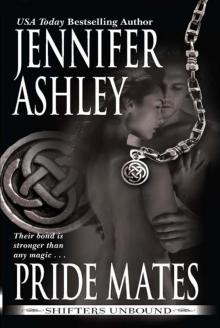 Pride Mates
Pride Mates The Duke's Perfect Wife
The Duke's Perfect Wife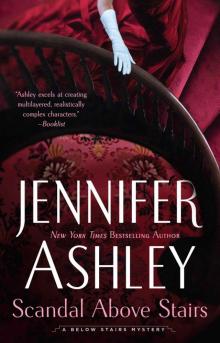 Scandal Above Stairs
Scandal Above Stairs White Tiger
White Tiger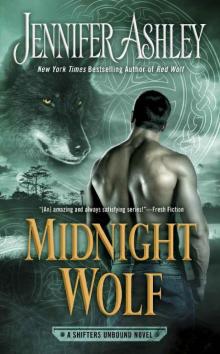 Midnight Wolf
Midnight Wolf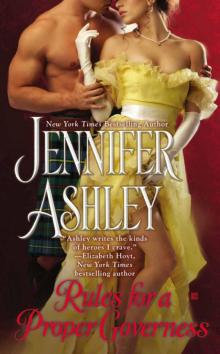 Rules for a Proper Governess
Rules for a Proper Governess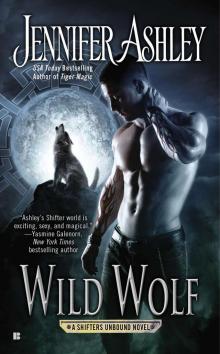 Wild Wolf
Wild Wolf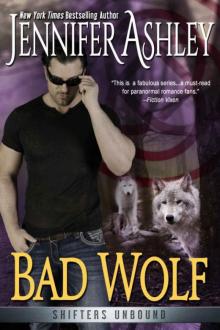 Bad Wolf
Bad Wolf Lion Eyes
Lion Eyes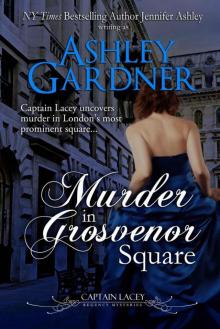 Murder in Grosvenor Square
Murder in Grosvenor Square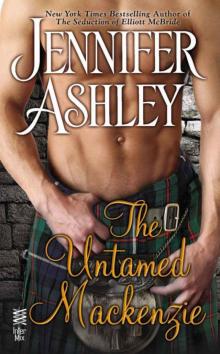 The Untamed MacKenzie
The Untamed MacKenzie Wicked Deeds of Daniel Mackenzie
Wicked Deeds of Daniel Mackenzie Tiger Striped_Shifters Unbound
Tiger Striped_Shifters Unbound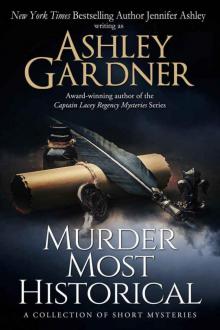 Murder Most Historical
Murder Most Historical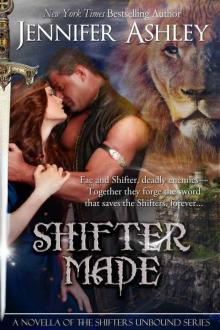 Shifter Made
Shifter Made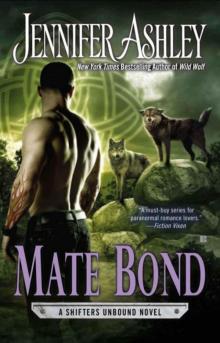 Mate Bond
Mate Bond Tiger Striped
Tiger Striped Bodyguard
Bodyguard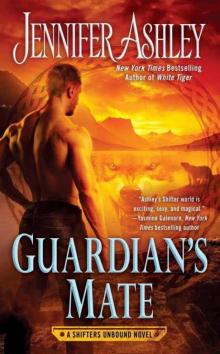 Guardian's Mate
Guardian's Mate From Jennifer Ashley, With Love
From Jennifer Ashley, With Love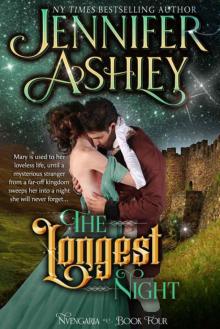 The Longest Night
The Longest Night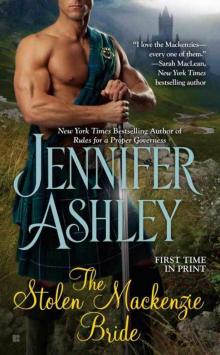 The Stolen Mackenzie Bride
The Stolen Mackenzie Bride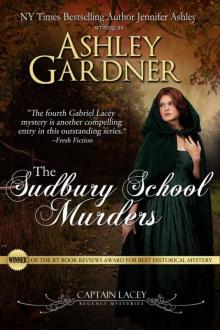 The Sudbury School Murders
The Sudbury School Murders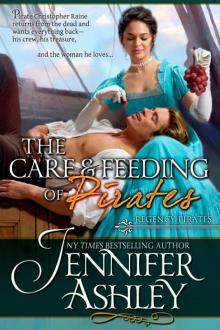 The Care & Feeding of Pirates
The Care & Feeding of Pirates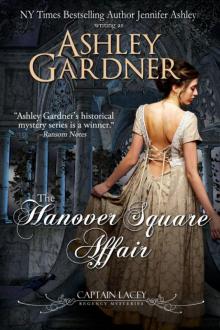 The Hanover Square Affair
The Hanover Square Affair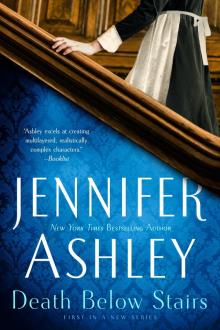 Death Below Stairs
Death Below Stairs Wild Things
Wild Things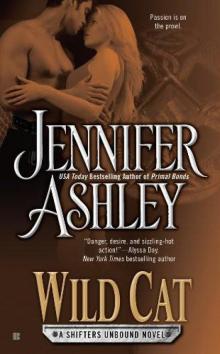 Wild Cat
Wild Cat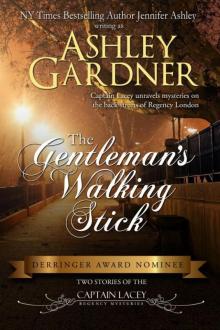 The Gentleman's Walking Stick
The Gentleman's Walking Stick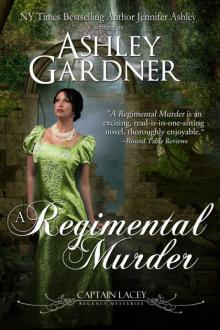 A Regimental Murder
A Regimental Murder Lone Wolf
Lone Wolf Forbidden Taste
Forbidden Taste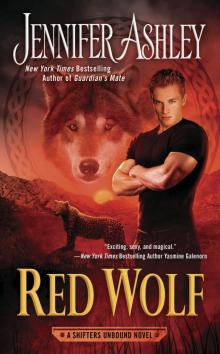 Red Wolf
Red Wolf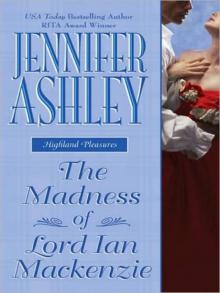 The Madness of Lord Ian Mackenzie
The Madness of Lord Ian Mackenzie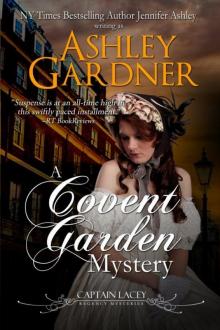 A Covent Garden Mystery
A Covent Garden Mystery The Pirate Next Door
The Pirate Next Door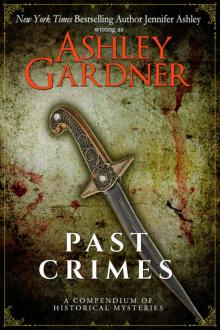 Past Crimes: A Compendium of Historical Mysteries
Past Crimes: A Compendium of Historical Mysteries Highlander Ever After
Highlander Ever After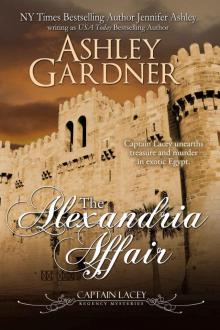 The Alexandria Affair
The Alexandria Affair A Shifter Christmas Carol
A Shifter Christmas Carol The Devilish Lord Will
The Devilish Lord Will Adam
Adam Kyle (Riding Hard Book 6)
Kyle (Riding Hard Book 6)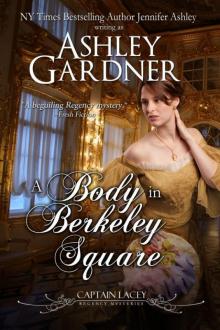 A Body in Berkeley Square
A Body in Berkeley Square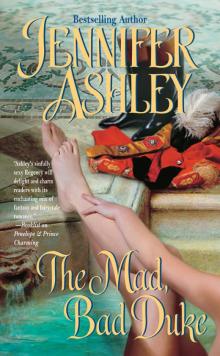 The Mad, Bad Duke
The Mad, Bad Duke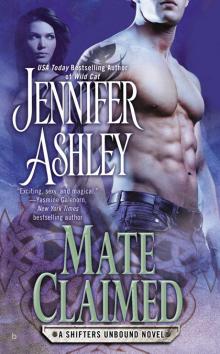 Mate Claimed
Mate Claimed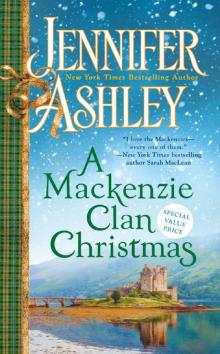 A Mackenzie Clan Christmas
A Mackenzie Clan Christmas The Seduction of Elliot McBride
The Seduction of Elliot McBride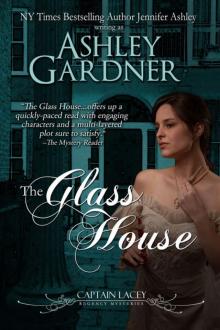 The Glass House
The Glass House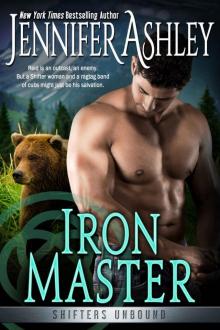 Iron Master (Shifters Unbound Book 12)
Iron Master (Shifters Unbound Book 12)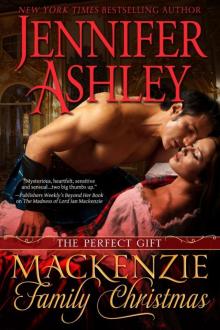 A Mackenzie Family Christmas: The Perfect Gift
A Mackenzie Family Christmas: The Perfect Gift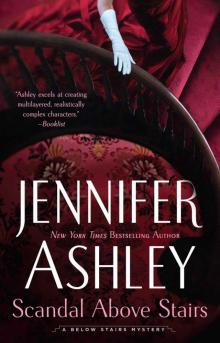 Scandal Above Stairs_A Below Stairs Mystery
Scandal Above Stairs_A Below Stairs Mystery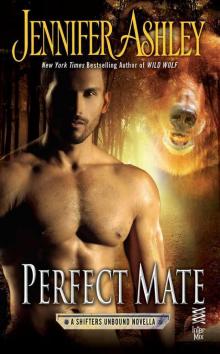 Perfect Mate
Perfect Mate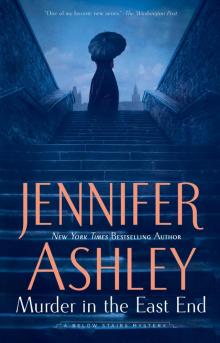 Murder in the East End
Murder in the East End Snowbound in Starlight Bend
Snowbound in Starlight Bend Hard Mated
Hard Mated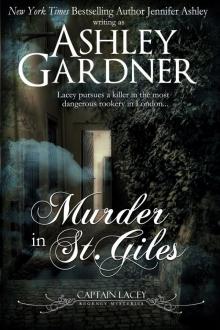 Murder in St. Giles
Murder in St. Giles Alec Mackenzie's Art of Seduction
Alec Mackenzie's Art of Seduction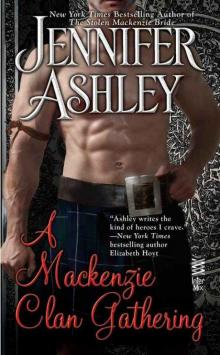 A MacKenzie Clan Gathering
A MacKenzie Clan Gathering Tyler
Tyler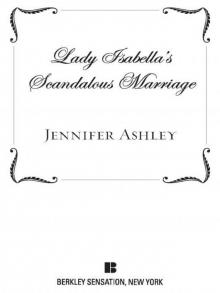 Lady Isabella's Scandalous Marriage
Lady Isabella's Scandalous Marriage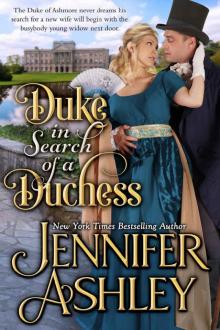 Duke in Search of a Duchess: Sweet Regency Romance
Duke in Search of a Duchess: Sweet Regency Romance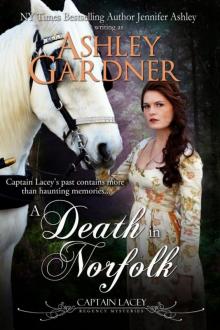 A Death in Norfolk
A Death in Norfolk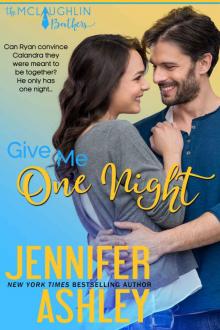 Give Me One Night (McLaughlin Brothers Book 4)
Give Me One Night (McLaughlin Brothers Book 4)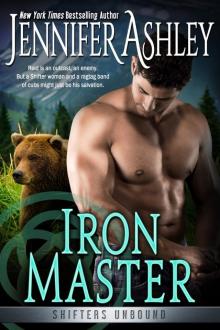 Iron Master
Iron Master The Many Sins of Lord Cameron
The Many Sins of Lord Cameron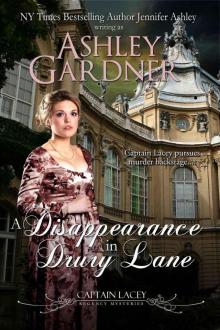 A Disappearance in Drury Lane
A Disappearance in Drury Lane Never Say Never (McLaughlin Brothers Book 3)
Never Say Never (McLaughlin Brothers Book 3) Death in Kew Gardens
Death in Kew Gardens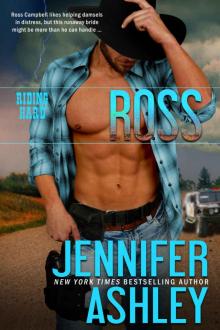 Ross: Riding Hard, Book 5
Ross: Riding Hard, Book 5 Ray: Riding Hard
Ray: Riding Hard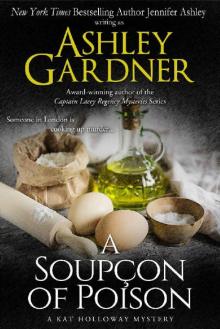 A Soupçon of Poison
A Soupçon of Poison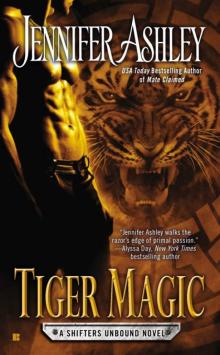 Tiger Magic
Tiger Magic The Pirate Hunter's Lady
The Pirate Hunter's Lady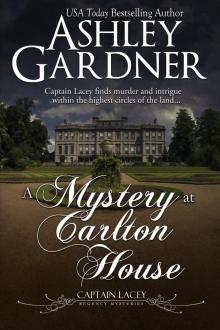 A Mystery at Carlton House
A Mystery at Carlton House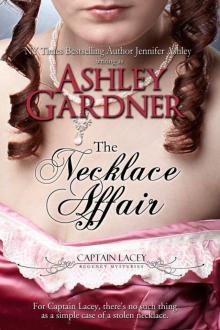 The Necklace Affair
The Necklace Affair Wolf Hunt
Wolf Hunt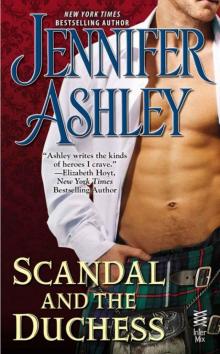 Scandal and the Duchess
Scandal and the Duchess Kyle
Kyle Why Don't You Stay? ... Forever (McLaughlin Brothers Book 2)
Why Don't You Stay? ... Forever (McLaughlin Brothers Book 2)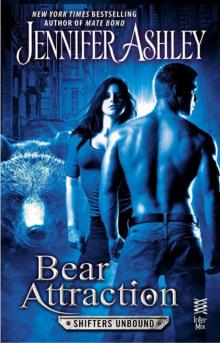 Bear Attraction
Bear Attraction The Gathering
The Gathering A Mackenzie Yuletide
A Mackenzie Yuletide Wild Things (Shifters Unbound #7.75)
Wild Things (Shifters Unbound #7.75) The Redeeming
The Redeeming The Seduction of Elliot McBride hp-5
The Seduction of Elliot McBride hp-5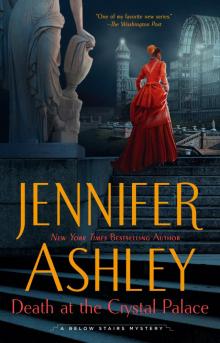 Death at the Crystal Palace
Death at the Crystal Palace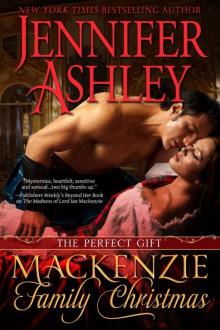 Mackenzie Family Christmas: The Perfect Gift (highland pleasures)
Mackenzie Family Christmas: The Perfect Gift (highland pleasures) Forbidden Taste: A Vampire Romance (Immortals)
Forbidden Taste: A Vampire Romance (Immortals)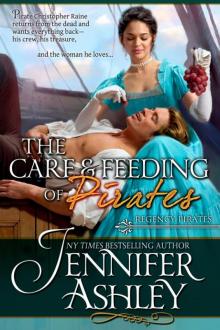 Care and Feeding of Pirates
Care and Feeding of Pirates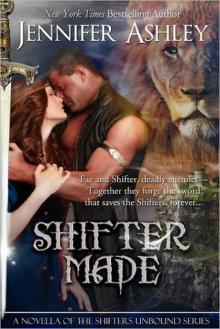 Shifter Made (shifters unbound)
Shifter Made (shifters unbound) Dark and Dangerous: Six-in-One Hot Paranormal Romances
Dark and Dangerous: Six-in-One Hot Paranormal Romances The Duke’s Perfect Wife hp-4
The Duke’s Perfect Wife hp-4 The Seduction of Elliot McBride (Mackenzies Series)
The Seduction of Elliot McBride (Mackenzies Series)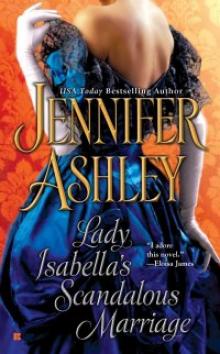 Lady Isabella's Scandalous Marriage hp-2
Lady Isabella's Scandalous Marriage hp-2 BodyGuard (Butterscotch Martini Shots Book 2)
BodyGuard (Butterscotch Martini Shots Book 2) The Wicked Deeds of Daniel Mackenzie hp-6
The Wicked Deeds of Daniel Mackenzie hp-6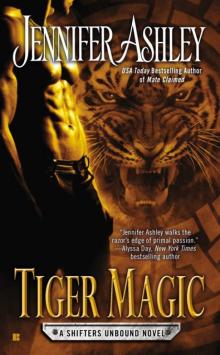 Tiger Magic su-5
Tiger Magic su-5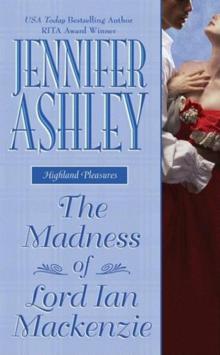 The Madness Of Lord Ian Mackenzie hp-1
The Madness Of Lord Ian Mackenzie hp-1 Alec Mackenzie's Art of Seduction: Mackenzies (Mackenzies Series Book 9)
Alec Mackenzie's Art of Seduction: Mackenzies (Mackenzies Series Book 9)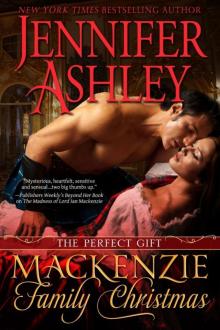 Mackenzie Family Christmas: The Perfect Gift
Mackenzie Family Christmas: The Perfect Gift Bodyguard (Shifters Unbound #2.5)
Bodyguard (Shifters Unbound #2.5)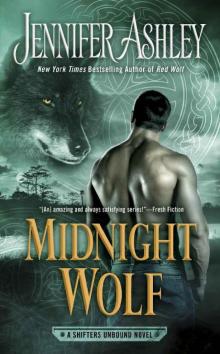 Midnight Wolf (A Shifters Unbound Novel)
Midnight Wolf (A Shifters Unbound Novel) White Tiger (A Shifter's Unbound Novel)
White Tiger (A Shifter's Unbound Novel) Cowboys Last All Night
Cowboys Last All Night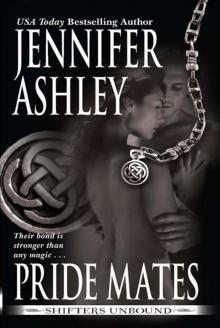 Pride Mates su-1
Pride Mates su-1 Hard Mated (shifters unbound )
Hard Mated (shifters unbound ) Bodyguard (shifters unbound )
Bodyguard (shifters unbound ) Snowbound in Starlight Bend: A Riding Hard Novella
Snowbound in Starlight Bend: A Riding Hard Novella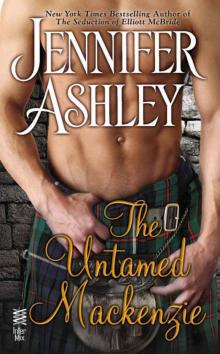 The Untamed Mackenzie (highland pleasures)
The Untamed Mackenzie (highland pleasures)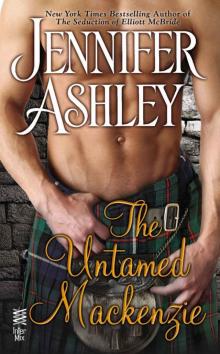 The Untamed Mackenzie (Mackenzies Series)
The Untamed Mackenzie (Mackenzies Series)![Highland Pleasures [6] The Wicked Deeds of Daniel Mackenzie Read online](http://i1.bookreadfree.com/i2/04/07/highland_pleasures_6_the_wicked_deeds_of_daniel_mackenzie_preview.jpg) Highland Pleasures [6] The Wicked Deeds of Daniel Mackenzie
Highland Pleasures [6] The Wicked Deeds of Daniel Mackenzie Lone Wolf (shifters unbound)
Lone Wolf (shifters unbound)![Shifters Unbound [5] Tiger Magic Read online](http://i1.bookreadfree.com/i2/04/11/shifters_unbound_5_tiger_magic_preview.jpg) Shifters Unbound [5] Tiger Magic
Shifters Unbound [5] Tiger Magic Tyler (Riding Hard Book 4)
Tyler (Riding Hard Book 4) Ross
Ross Bad Boys of the Night: Eight Sizzling Paranormal Romances: Paranormal Romance Boxed Set
Bad Boys of the Night: Eight Sizzling Paranormal Romances: Paranormal Romance Boxed Set From Jennifer Ashley, With Love: Three Paranormal Romances from Bestselling Series
From Jennifer Ashley, With Love: Three Paranormal Romances from Bestselling Series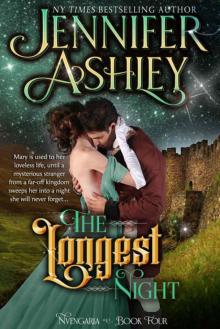 The Longest Night: Fantasy Romance (Nvengaria Book 4)
The Longest Night: Fantasy Romance (Nvengaria Book 4) The Many Sins of Lord Cameron hp-3
The Many Sins of Lord Cameron hp-3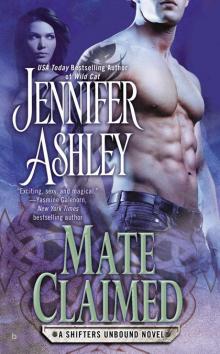 Mate Claimed su-4
Mate Claimed su-4